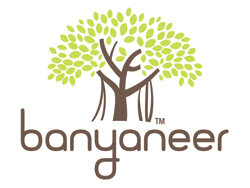TRaining
Stay tuned for new online training courses that will start in late 2022. They will feature resilience programming, the role of nature in disaster risk reduction (DRR), success factors in DRR, monitoring methods, and ways to strengthen sustainability (more soon).
We also offer targeted training courses (online or onsite) on these and other topics — send us a mail to explore options. We thank all participants for great mutual learning and discussions throughout 2020 and 2021.
Learn.
Share.
Connect.
Just like the pictured community in Cambodia (whom we showed the first aerial video of their village back in 2014 at the end of a workshop), we want to excite and engage you - because that is the best recipe for effective learning.
Learn new skills in our dynamic courses that help you through the Covid-19 crisis and beyond. Improve your skills in report-writing or monitoring, or learn how to measure resilience. Share your insights and experiences with others, and learn from them too! Connect with other development and humanitarian professionals from around the world!
vive the virtual
There are now many free webinars and online courses on offer, and they have their virtue. Many are nice-to-have add-ons, few are serious alternatives to regular training. At Banyaneer, we want to go further. We are serious about fun and effective online training.
What if we could make interactions, informality and fun part of online training? What if courses were at least as exciting as the ones in the classroom? We’d save countless hours on the road, at airport security checks, at immigration. We’d reduce our greenhouse gas footprint, helping to lessen the impact of the climate crisis that looms even larger in the long run than Covid-19.
Great online training can go a long way, and can be here for good. We based our general training model on four fundamentals:
-
Over the years, we have been to more than 1,000 communities in 26 countries, assessing needs or evaluating projects. We all have programming experience, and we have been fortunate to discuss with and learn from project teams of NGOs and Red Cross/Red Crescent Societies.
We gained a good view of great practices and challenges on the ground. We analysed and compared. In our courses, we let experience speak through case studies, anecdotes, and analysis. We bring theories to life, making learning more memorable.
-
You are experts in what you do, and we’d love to learn from you! So we aim to tap your experience through a range of exciting exercises. Let’s share ideas and learn from each other.
With small class sizes (20 pax max), even smaller teams who can discuss in breakout rooms and share results on digital whiteboards, and paired coffee breaks that allow for informal chats, we want to make sure that the everyone can learn from your expertise.
-
Let’s face it: you’ll still sit in front of a computer. Attention spans tend to be shorter; having an eight-hour training day is as common for classroom traing as it is undesirable online. Our courses are structured into three-hour sessions at convenient times.
Each session is broken into various components with different modes of delivery (presentation, plenary discussion, team work, games, ice-breakers), and none will be longer than 30 minutes. We’ll have breaks, exchanges, fun!
-
Great online training relies on good technology, and we’ve invested in a professional studio set-up. Good connectivity, lighting and audio are the basics of any training provider.
At Banyaneer, we also have a green screen, multi-purpose monitors, and an AI camera for immersive visuals. Technical co-facilitators ensure seamless facilitation and support team work. May sound nerdy, but we’re confident that you’ll be convinced of the value once you’re immersed.


